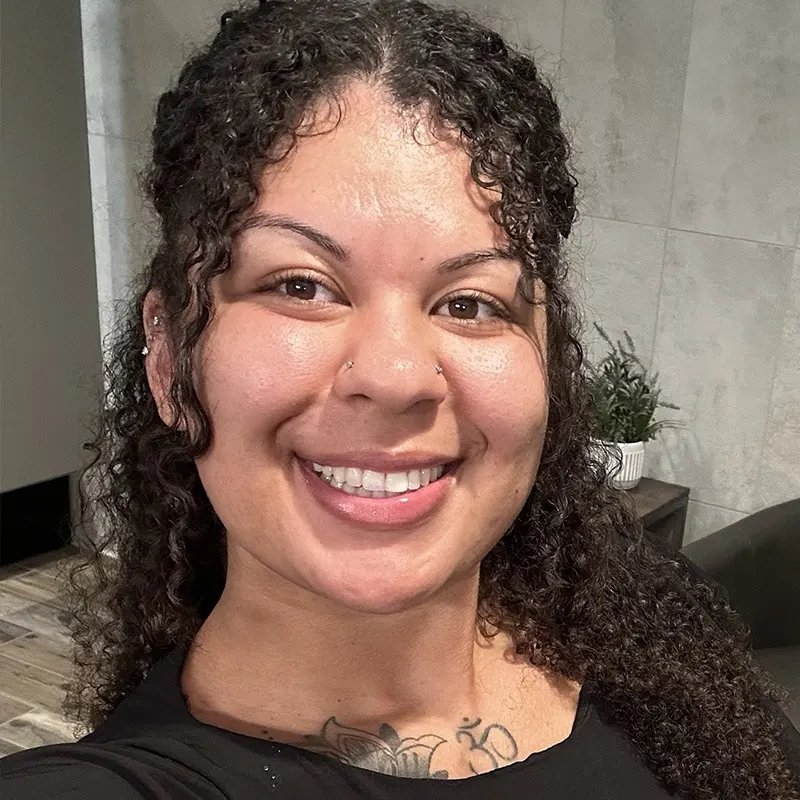At Cardinal Pediatric Therapies, we understand the transformative power of Applied Behavior Analysis (ABA) therapy as an evidence-based treatment for individuals with autism spectrum disorder (ASD). While ABA is often associated with clinical and home settings, we recognize its critical importance in educational environments. Our commitment is to help students with autism succeed academically, socially, and behaviorally in their academic settings.
By integrating ABA therapy into classrooms, we foster structured and supportive learning environments where students with autism can truly thrive. We work closely with teachers, school staff, and therapists to equip them with practical tools that promote effective learning, reduce challenging behaviors, and cultivate meaningful engagement for all students.
In this article, we delve into the role of ABA therapy in schools, highlighting its numerous benefits for students with autism. We also showcase how schools in Arizona and North Carolina are paving the way for inclusive education through ABA-based interventions, a mission that Cardinal Pediatric Therapies proudly supports and advocates for.

Supporting Individual Needs with ABA in Schools
The foundation of ABA therapy lies in its individualized approach. Every student with autism has unique strengths, needs, and learning styles. In school settings, ABA techniques are used to develop customized interventions that align with each student’s educational and behavioral goals.
One of the most common applications of ABA in schools is through the development and implementation of Individualized Education Plans (IEPs). These plans are crucial for ensuring that students with disabilities receive the necessary support and accommodations. ABA helps educators and school psychologists design practical IEP goals that target skill development, communication, behavior, and social interaction.
ABA Therapy and Individualized Education Plans (IEPs)
ABA is often central to the creation and success of an IEP for a student with autism. When ABA principles are used to guide IEP development, educators can:
- Set measurable and achievable goals tailored to the student’s current abilities
- Identify specific skill areas, such as functional communication or emotional regulation
- Outline clear strategies for teaching new behaviors and reducing problematic ones
- Ensure that academic, behavioral, and social objectives are addressed with evidence-based methods
IEPs that are grounded in ABA are not static. Through ongoing data collection and collaboration between the school team and families, these plans are adjusted to reflect the student’s growth, ensuring consistent progress over time.
Behavior Management in the Classroom
Managing behavior is one of the most pressing challenges in special education settings. ABA therapy offers a structured, evidence-based framework for behavior management, enabling students to develop more adaptive ways of responding to their environment.
In schools, ABA-trained professionals conduct Functional Behavior Assessments (FBAs) to identify the reasons behind a student’s challenging behaviors. These assessments identify the root causes of behaviors such as self-injury, aggression, or task avoidance. Based on the results, a Behavior Intervention Plan (BIP) is developed to:
- Replace problematic behaviors with appropriate alternatives
- Provide clear expectations and consequences
- Use positive reinforcement to encourage desirable behavior
- Reduce disruptions in the classroom
Behavior plans designed with ABA methods lead to safer, more productive learning environments where students with autism feel supported and understood.

Enhancing Social Skills and Communication
Social interaction can be a significant area of difficulty for students with autism. ABA therapy incorporates structured social skills training into the school day to help students build relationships, understand social cues, and communicate effectively with peers and teachers.
Social skills programs based on ABA may include:
- Role-playing common social situations
- Practicing turn-taking, eye contact, and appropriate greetings
- Teaching perspective-taking and empathy
- Reinforcing appropriate responses in group settings
By working on social skills in real-time classroom settings, students with autism have more opportunities to generalize these skills to other environments, leading to more inclusive participation in school life.
Visual Supports and Structured Schedules
Visual structure is a key strategy in ABA therapy and is highly beneficial in school settings. Many students with autism spectrum disorder (ASD) process information more effectively when it is presented visually. ABA-informed classrooms often include:
- Visual schedules that outline the day’s activities
- First-then boards to support transitions between tasks
- Social stories that explain expected behaviors or routines
- Token systems to motivate and reinforce progress
These supports reduce anxiety, clarify expectations, and help students become more independent in managing their time and behavior throughout the school day.

Data-Driven Instruction and Progress Monitoring
One of the hallmarks of ABA therapy is its data-driven approach. In school settings, this means that interventions are regularly measured to ensure effectiveness. Teachers and therapists collect data on student behavior, skill acquisition, and progress toward goals on a daily or weekly basis.
The benefits of this approach include:
- Making informed decisions about teaching strategies
- Adjusting IEP goals based on actual progress
- Identifying trends and patterns in student behavior
- Providing concrete data for parent-teacher conferences
This level of detail enables personalized learning that evolves in response to the student’s needs, ensuring that no child is left behind.
Training School Staff in ABA Strategies
For ABA to be most effective in school environments, teachers, aides, and staff must be trained in its core principles and practices. Schools that invest in professional development or partner with ABA providers can create a more cohesive and consistent approach to student support.
Training may include:
- Understanding the ABCs of behavior (Antecedent, Behavior, Consequence)
- Using positive reinforcement techniques
- Recognizing early signs of distress or escalation
- Implementing visual schedules and prompting systems
- Collecting and interpreting behavioral data
This shared understanding across all staff members enhances the consistency and quality of support for students with autism.
Building Inclusive Classrooms Through ABA
At its core, the use of ABA therapy in school settings supports the broader goal of inclusive education. When students with autism have access to individualized supports rooted in ABA, they are more likely to thrive academically and socially alongside their peers.
Inclusion benefits everyone in the classroom. Neurotypical students gain awareness, empathy, and collaborative skills, while students with autism benefit from real-life peer modeling and diverse social experiences.
Schools in Arizona and North Carolina are increasingly incorporating ABA into their classrooms to promote equity and opportunity for all learners.
ABA Support for Schools in Arizona and North Carolina
At Cardinal Pediatric Therapies, we are dedicated to supporting schools in creating inclusive, effective, and supportive environments for students with autism. Our team of Board Certified Behavior Analysts (BCBAs) and Registered Behavior Technicians (RBTs) works directly with families and educators to implement ABA in schools across Arizona and North Carolina.
Our services include:
- In-school ABA therapy and support
- Collaboration with IEP teams
- Behavior assessments and intervention planning
- Social skills group facilitation
- Parent and teacher training
Whether you are a parent seeking autism support services or a school administrator looking for expert ABA guidance, our team is here to help.

The Importance of ABA in Schools
The use of ABA therapy in school settings has transformed the way educators support students with autism. From personalized education plans and behavior strategies to social skill development and structured learning tools, ABA creates a roadmap for success in the classroom and beyond.
By integrating ABA principles into school environments, educators can meet each child where they are and help them reach their full potential—academically, socially, and emotionally.
Searching for support for students with autism in Arizona or North Carolina schools? Contact Cardinal Pediatric Therapies today to learn more about how our services can support your students and school community.











